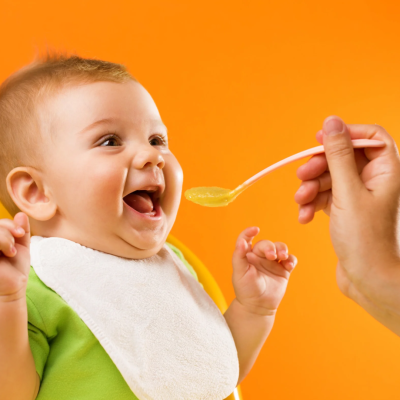Are Organic Baby Foods Worth the Cost?

Are organic baby foods worth the cost? Answer our poll now to see what our members are saying, and get 3 bonus entries into our exclusive giveaway!
Are Organic Baby Foods Worth the Cost? What Canadian Parents Should Know
When you’re a new parent in Canada, making the best choices for your baby’s health becomes a top priority — and that includes choosing what goes on their plate (or spoon). One of the big questions parents face today is whether organic baby food is worth the higher price tag.
With grocery costs already on the rise, this is more than just a health debate — it’s a financial one too. In this article, we’ll explore both sides of the issue so you can make an informed, confident decision that works for your family.
What Is Organic Baby Food?
In Canada, organic baby food is made from ingredients that are grown without synthetic pesticides, herbicides, genetically modified organisms (GMOs), or artificial preservatives. To be labeled organic, products must meet Canadian Organic Standards and carry the Canada Organic logo, regulated by the Canadian Food Inspection Agency (CFIA).
Organic baby food comes in the same forms as conventional baby food: jars, pouches, cereals, and snacks, as well as fresh and frozen options.
The Case For Organic Baby Food
1. Fewer Pesticide Residues
Supporters of organic baby food often cite reduced exposure to synthetic pesticides. While pesticide levels in conventional food are generally within safe limits, some parents prefer to avoid unnecessary chemicals during their baby’s critical development years.
2. Non-GMO Ingredients
Organic certification also means the food is free from genetically modified organisms. Although GMOs are considered safe by Health Canada, some parents prefer to avoid them due to personal values or concerns over long-term environmental impacts.
3. Environmental Benefits
Organic farming practices are often considered more sustainable and environmentally friendly. By choosing organic, some parents feel they’re supporting a food system that’s better for future generations.
4. Perceived Taste and Quality
Some parents believe that organic fruits and vegetables have a fresher, more natural taste — especially if they’re buying locally grown or small-batch organic baby foods.
The Case Against Organic Baby Food (Or Why Conventional Can Still Be a Great Choice)
1. Higher Cost
The most obvious downside to organic baby food is the price. Organic options can cost 20–50% more than conventional baby food. For families on a budget, this difference adds up quickly over months of feedings.
2. Strict Safety Standards for All Baby Food
All baby foods in Canada — organic or not — must meet strict safety guidelines from Health Canada and the CFIA. This includes pesticide residue limits, hygiene standards, and nutritional content. So even if you choose non-organic, your baby is still getting safe, healthy food.
3. No Proven Nutritional Advantage
Research shows no significant nutritional difference between organic and conventional produce. For example, both provide essential vitamins, minerals, and fibre. Choosing organic doesn’t mean your baby is getting more nutrients — just differently produced ones.
4. Limited Availability and Variety
Organic options can be harder to find, especially outside urban areas or in smaller grocery stores. Some parents may find fewer flavour options or less convenient packaging in the organic section.
How to Decide What’s Best for Your Family
There’s no one-size-fits-all answer — and that’s okay. Here are a few practical tips to help you choose what’s right for your baby and your budget:
Mix and match: You might choose to buy organic for the “dirty dozen” (fruits and veggies more likely to carry pesticide residue) and go conventional for others.
Make your own: Buying organic produce and making your own baby food at home can be more affordable than store-bought jars or pouches.
Shop smart: Watch for sales, use coupons, or look for store-brand organic baby foods to save money.
Focus on variety: Whether organic or conventional, offering your baby a variety of healthy foods matters more than the label.
Final Thoughts
So — are organic baby foods worth the cost? That depends on your family’s priorities, budget, and lifestyle.
If avoiding synthetic pesticides and supporting organic farming aligns with your values and you can afford the extra cost, organic might be the right choice for you. But if you’re focused on keeping grocery bills manageable, conventional baby food is still a safe, nutritious, and completely valid option.
At CanadianParent.ca, we support informed choices — not one-size-fits-all answers. What matters most is that your baby is fed, loved, and thriving.